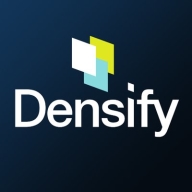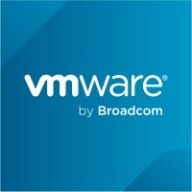

Find out what your peers are saying about Nutanix, Broadcom, IBM and others in Cloud Management.
| Product | Market Share (%) |
|---|---|
| Densify | 1.0% |
| VMware Aria Automation | 9.4% |
| Morpheus | 7.0% |
| Other | 82.6% |
| Product | Market Share (%) |
|---|---|
| VMware vSphere | 17.0% |
| Hyper-V | 15.6% |
| Proxmox VE | 15.5% |
| Other | 51.9% |


| Company Size | Count |
|---|---|
| Small Business | 1 |
| Midsize Enterprise | 1 |
| Large Enterprise | 9 |
| Company Size | Count |
|---|---|
| Small Business | 174 |
| Midsize Enterprise | 137 |
| Large Enterprise | 256 |
Densify is a hybrid cloud and container resource management platform that makes workloads self-aware of their precise resource requirements and automates the resource management and selection process. This solution helps you control your cloud spend and also helps your apps perform and scale better. Densify enables you to match your cloud requirements with the optimal cloud supply. Additionally, Densify is the only technology that leverages patented, predictive machine learning-powered analytics to perform advanced modeling of workload patterns, and provide precise optimization directives. It is ideal for cloud engineers, container platform owners, and IT finance.
Densify works by:
Densify Features
Densify has many valuable key features. Some of the most useful ones include:
Densify Benefits
There are many benefits to implementing Densify. Some of the biggest advantages the solution offers include:
VMware vSphere is a versatile virtualization platform known for its ease of use, flexibility, and high availability. It supports seamless migration, optimal resource allocation, and centralized management, making it highly suitable for diverse infrastructure needs.
VMware vSphere is widely adopted for its virtualization capabilities that enhance hardware efficiency and ensure minimal downtime through features like High Availability and Distributed Resource Scheduler. Despite criticisms about high licensing costs and limited fault tolerance, it remains a preferred choice due to its stability, scalability, and robust integration options. Users appreciate its efficiency in managing virtual machines and hosting enterprise applications, although challenges with web client performance and hardware compatibility are noted. Organizations often look for better integration with cloud services and enhanced automation and scalability.
What are the core features of VMware vSphere?
What benefits and ROI can businesses look for?
VMware vSphere is implemented across sectors like healthcare, finance, and education for server virtualization, data center management, and private cloud creation. Its use in facilitating business-critical operations ensures high availability and efficient resource use, supporting both development and production environments.
We monitor all Cloud Management reviews to prevent fraudulent reviews and keep review quality high. We do not post reviews by company employees or direct competitors. We validate each review for authenticity via cross-reference with LinkedIn, and personal follow-up with the reviewer when necessary.